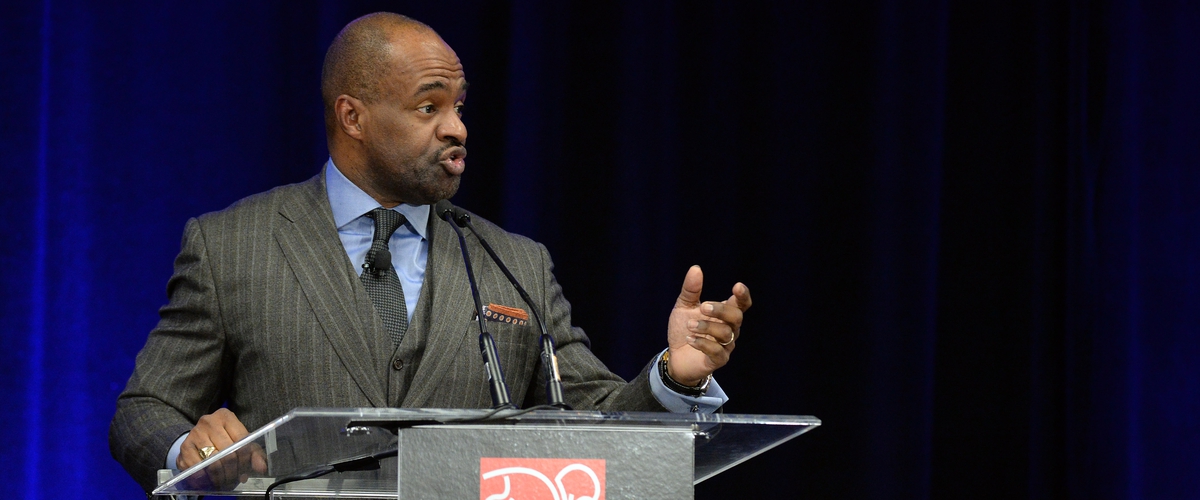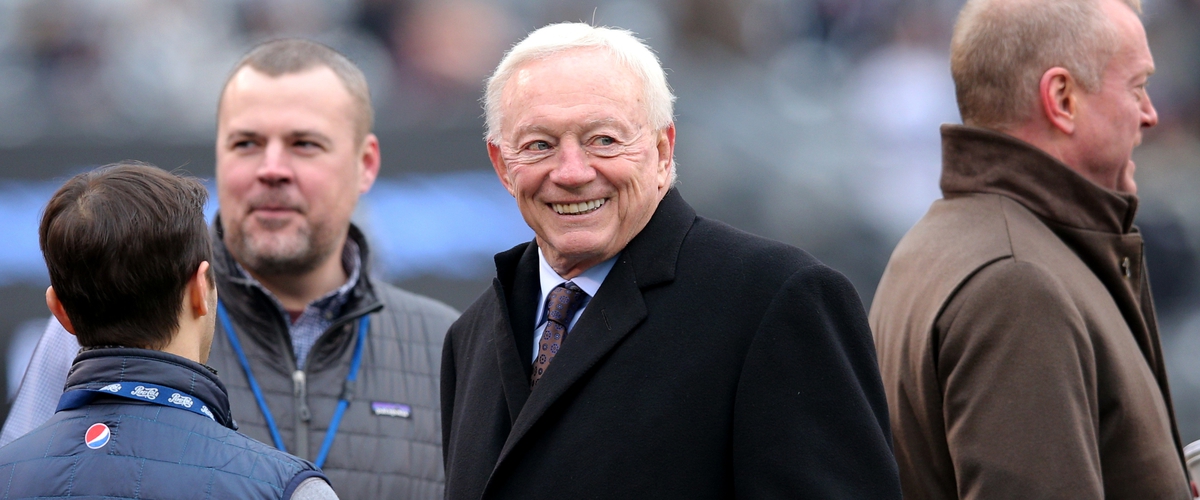10 Reasons Why an 18 Game NFL Season Would be a Logistical Nightmare

Recently, there have been multiple reports that NFL owners want to push for an 18 game regular season when the new CBA is negotiated. It has also been suggested that owners might propose a 16 game limit so as not to inflate stats and more importantly keep players safe. When I initially heard this proposal, I thought it might just be a good idea. After all, I consider myself a football super fan and I wouldn't have a problem tuning in to two extra weeks of regular season games. More "Red Zone", more fantasy, more tailgating, what's not to love?
However, the more I think, read, and hear about it the more I think this proposed plan would be a logistical nightmare for the NFL and everyone invested in it. There are so many possible complications that would arise in all different industries connected to the sport that the cost far outweighs the benefit. Here are 10 specific reasons why the NFL should scrap this idea before it begins to gain traction.
I should mention that these are all hypothetical problems that I believe could arise if the NFL instituted an 18 game season with a 16 game limit per player.
10. It could cause a lockout
Many articles could and will be written on the different issues up for debate in the new Collective Bargaining Agreement which would have to take effect by the 2021 season. However, there may be no issue that the owners and the NFLPA disagree on more than this one. Executive director of the NFLPA DeMaurice Smith is quoted as saying "I don't see an 18-game schedule -under any circumstance- being in the best interest of our players." That is a pretty strong statement of dissent from Smith, but I believe he is completely right. If the NFL cares about player safety as much as it claims to, it would not put its players at risk by making them practice and play for two extra weeks. Even if the salary cap rises due to extra TV revenue it is unlikely that each player would get paid more. Instead, each team would likely pay its superstars more while barely raising the pay of its third stringers. Even though the Union rejected the initial proposal, I have a feeling that this debate is far from over. Depending on how fervently the owners push for the 18 game season, this issue could drive a wedge between the two sides and prevent a new CBA from getting passed before 2021.
9. Making Stars Sit
The other problem that immediately stands out is that the NFL would be forcing coaches to healthy scratch some of their best players. Not only is this arguably unfair to teams that rely heavily on top end talent, but it also stinks for fans and networks. The debate over load management has already been raging in the NBA for several years, and it would be no different in the NFL. Many fans buy tickets well in advance of the actual games and pay several hundred dollars for them. Imagine being a Texans fan and buying tickets for a game only to find out that week that Deandre Hopkins and JJ Watt will be forcibly benched. And yes, perhaps teams would only bench their best players during away games but that still sucks for fans who look forward to seeing superstars from other teams come to town. Also, national TV networks usually get only a few games a year from the NFL's nest teams. They market prime time games on Thursday, Monday and Sunday by promoting stars. Imagine being the unfortunate soul who has to call the executives at ESPN and tell them Sean Payton has decided to scratch Drew Brees ahead of a Monday Night Football game. It would almost certainly lead to a sharp drop-off in ratings for these important games.
8. Making Backup Quarterbacks Play
On the subject of quarterback play, let's pause for a moment and imagine a world in which 32 backup quarterbacks have to play at least two games a year. Teams like the Browns, Texans, Bills and others will tell you how hard it is to find one quarterback capable of starting and winning in the NFL, never mind two. There simply aren't enough people in the world who can play the position. Some teams, of course, would be better off than others. However, there is a good chance that this rule would lead to way too much sloppy and unwatchable quarterback play. Does anyone really want to watch more games like the 2017 Brock Osweiler vs. Connor Cook Wildcard game? I think not.
7. The Kicking and Punting Problem
While we're at it, why don't we think about another position that can't even be filled as it is? Teams like the Chargers, Bears, and Bucs have all experienced kicking woes recently. So if there was a 16 game cap per player would that apply to kickers and punters? If not, they would certainly have to get paid more. If the limit would apply, then what are teams to do when they can't play there kicker? Have the backup QB do dropkicks? Always go for it on 4th down, go for two after touchdowns, and let the punter handle kickoffs? Or, teams could always carry or sign a backup kicker and cost some practice squad player the chance to make a living. No matter how you slice it some problem's cant be solved by just inserting a backup player.
6. Expanding Rosters?
This isn't as much of a problem as it is a potential solution to the previous issues. Teams might need to carry more players on the roster to compensate for depth issues in certain weeks. Say coaches wanted to carry 60 players instead of 53 to allow them to add another kicker, punter, O-lineman, quarterback and a few other key positions. Would owners go for this, or would they refuse to pay an extra seven players? After all, the whole point of this season expansion would be to pad the owner's pockets with extra TV and stadium revenues. It would only seem right for them to have to give up a little profit to make it all possible. And yet, this seems unlikely given that billionaires hate wasting money on frivolous things like extra salaries that would keep players safer.

5. Veterans Losing Jobs (and Money)
Another problem is the old-school but still true saying "You can't make the club in the tub." This has traditionally applied to injured players losing their jobs to healthy young upstarts. Don't believe it can happen? Just ask Drew Bledsoe, Alex Smith in San Francisco, and Tony Romo. But now, imagine losing your job not because you got injured but because you were forcibly benched. It's not hard to imagine a scenario where an aging veteran is unseated by a hotshot rookie that makes the most of there opportunity to start. Some might say this is only fair or a kind of natural selection in the league, but its already hard enough to keep a job in the NFL. If a veteran is going to lose their chance to start or make one last big contract before they retire shouldn't they at least lose it because of poor play or the dumb luck of an injury? It just doesn't seem right that a player could lose their job and a lot of money because of some contrived rule instituted to make owners even richer.
4. More Bye Weeks?
Right now, each team plays 16 games but the NFL regular season is 17 weeks long because each team gets one bye week. There is already a problem of some teams having bye weeks early in the season and, like week 4 or 5, and then having to grind out 12 straight games to finish the season. So now, imagine that they have to grind out 14 games in a row. And yes, the players would get 2 games off in this scenario but staff and coaches would not. One possible solution is to make the season 20 weeks long and give each team two bye weeks roughly one third and two thirds of the way into the 18 game season. This might work, but it also makes casual fans a lot less interested for the two weeks of the year when their team doesn't play. Another question that doesn't have a clear answer right now is when would coaches have to announce which players are scratched for the week? Could they make a player practice and prepare all week just to inform them at the last minute that they won't be playing?
3. Fantasy Implications
This same question about when scratches would be announced impacts fantasy players as well. Fantasy owners would have to stay tuned all week to know which players are actually going to be available for their teams. It wouldn't be announced at the beginning of the season like a regular bye week either. It's possible to imagine in week 15 during your fantasy championship game Saquon Barkley and Travis Kelce both get benched and despite all of your planning and strategizing you lose your league. This could cost people not only bragging rights but also hundreds of dollars. It just complicates fantasy even more for casual players that already struggle to set their weekly lineup.
2. Betting Implications
Similarly, the timing of when scratches are announced would also have a profound effect on betting lines. Imagine how greatly the odds of a Patriots game would change if Tom Brady was playing or not playing. Imagine betting on the Pats early in the week only to find out on Saturday that he won't be playing. Say goodbye to your wager amount. Sports betting is only growing in popularity, but one way to halt that momentum would be to cause people to lose hundreds or thousands of dollars by betting on NFL games. This would also cost the NFL money and popularity as they move a team to the gambling capital of the country Las Vegas. Again, this would be an unintended consequence with a very wide ripple effect.

1. The Football Market is Already Saturated
Perhaps the best reason to not expand the season is that it simply does not need to be done. As it is, the NFL is a nearly year-round experience for hardcore fans. When the season is over, draft coverage begins. Then there is a short gap before OTAS, minicamp, training camp and the preseason. If the failure of the AAF taught us anything, it's that people aren't ready to consistently watch football after doing so for 20+ weeks. Of course the NFL would be more successful than an upstart league with no established fan bases, but overexposure is a problem in any entertainment field. As I mentioned at the top of the article, I am a football super fan and I would watch for two more weeks a year. But do I need another two weeks of football? No, and nobody else does either. When you weigh the benefit of more football against the costs to fans, players, coaches, gamblers, fantasy players and more it is simply not worth it. Let's call it like it is: this is an attempted cash grab by 32 already rich owners and they are the only people who would really profit from this plan. It hurts everybody else involved with the NFL on some level and mucks up the current system which is pretty efficient and sensible. Hopefully, the NFLPA stands strong in its stance against an 18 game schedule and still manages to get a new CBA done. This idea needs to die before it begins to build up steam.
By Jared Robert



